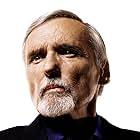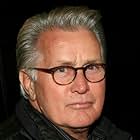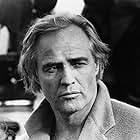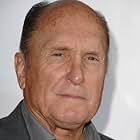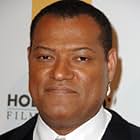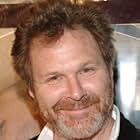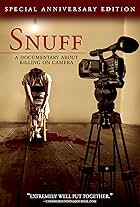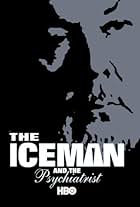Reise ins Herz der Finsternis
Der Dokumentarfilm schildert, wie Francis Ford Coppolas Apocalypse Now (1979) von Drehbuch-, Dreh-, Budget- und Besetzungsproblemen geplagt wurde, die beinahe das Leben und die Karriere des ... Alles lesenDer Dokumentarfilm schildert, wie Francis Ford Coppolas Apocalypse Now (1979) von Drehbuch-, Dreh-, Budget- und Besetzungsproblemen geplagt wurde, die beinahe das Leben und die Karriere des berühmten Regisseurs zerstört hätten.Der Dokumentarfilm schildert, wie Francis Ford Coppolas Apocalypse Now (1979) von Drehbuch-, Dreh-, Budget- und Besetzungsproblemen geplagt wurde, die beinahe das Leben und die Karriere des berühmten Regisseurs zerstört hätten.
- Regie
- Drehbuch
- Hauptbesetzung
- 2 Primetime Emmys gewonnen
- 8 Gewinne & 5 Nominierungen insgesamt
- Self
- (Archivfilmmaterial)
- (Nicht genannt)
- Self
- (as Francis Coppola)
- Self
- (as Larry Fishburne)
- Self
- (Archivfilmmaterial)
- Self
- (Archivfilmmaterial)
- Self
- (as Fred Forrest)
Empfohlene Bewertungen
The film may not be as mind-blowing as I expected, but it bares Coppola of all resistance or argument and still exposes him as a bold and daring filmmaker. It also exposes the chaos through which he put his cast and crew on location in the Philippines, and likewise what he suffered by them. Coppola, outraged that Martin Sheen's heart attack made its way to the media and the news could kill the production: "Even if he dies, I don't want to hear anything but good news until it comes from me." Dennis Hopper, his mind adrift on drugs, is unable to remember his lines and yet somehow improvises well what we see in the film. I love seeing authentic drug scenes in movies. Marlon Brando, at a cool million a week, finally shows up, yet unprepared and unexpectedly fat, and endlessly argues with Coppola about a character in a half-existent script he's barely read. Brando begins one scene and then walks away while the camera is still rolling. And Apocalypse Now premiered years after production had begun, shared the Palme d'Or, and went on to become one of the great mythic productions in film history.
Legends have blossomed from it. Coppola confessed he did not think the ending worked. Now we see what he was talking about. Originally set to be directed by the comparatively anemic George Lucas and scripted by Conan the Barbarian writer John Milius, the project went through so many changes that finally Coppola was writing it as he shot it, and actors were improvising. The production is harassed, plagued and badgered by rainstorms, morbidly obese budget overruns, health scares, and logistical horrors, as when the Philippine government rents Coppola the same helicopters it's using to fight rebels ten miles away.
Coppola shouted in despair to his wife, Eleanor: "I tell you from the bottom of my heart that I am making a bad film." And again, "We are all lost. I have no idea where to go with this." Yet Coppola's vision somehow remained secure. Milius, flown to the Philippines by a desperate studio to bring sanity back to the script, remembers that he walked in prepared to convince Coppola that the war was lost and they had to salvage what they could. When he left, Coppola had him convinced it would be the first film to win the Nobel Prize. That is what Francis Ford Coppola is made of, and why the film is so sad. It's like a dirge in that his glory days are long, long gone. Did he only have a handful of remarkable cinematic achievements in him? What has happened?
In the 1970s, he made the first two Godfathers and Apocalypse Now, assaulted with grave personal, political, and creative resistance that, as is evidenced here, almost dismantled him. The Conversation was made straight from his two bare hands. These films are masterstrokes. After Apocalypse Now, his work took a serious nosedive---The Outsiders? New York Stories? ---and even now, as he has returned to the helm with Youth Without Youth, he cannot seem to repossess his course. He had to fight for those masterpieces and that agony and ecstasy is what made them so unsurpassable. Though he at one point denies it in this documentary, Coppola must run on hectic despair and obstruction to make a great film. And that's what we see him do here. It's a curse.
Hearts of Darkness is based on footage that Eleanor Coppola shot at the time, and on recent interviews with both Coppolas, plus Milius, Lucas and the cast, including Larry Fishburne, whose appearance is fascinating because we see him as a naive, restless 14-year-old on a gigantic multi-million-dollar movie shoot and at the present, where he has changed and learned so much. We feel for once we are witnessing the true story of how a movie got made rather than a series of interviews about how brilliant person A is and what a beautiful soul person B is.
I have always made that known when reviewing a lot of films on IMDB how much this film means to me and when you watch Heart of Darkness without flickering an eyelid you kind of find out why. At the beginning of the documentary you see Francis ford Coppola talking about Apocalypse Now at a press conference and he says the famous line `The film wasn't about Vietnam, it was Vietnam' and after hearing it you are thinking what the hell is this guy on about and then you watch it and you think to yourself `Oh he was probably right bless him' because no one apart from the cast and crew knew what he really meant. Then you watch the documentary and you eat your words because we see how much pressure he was under and Brando and Martin Sheen's heart attack didn't help but he pulls through. It was like he made a pack with the devil for his film to be an absolute nightmare to make but for the final outcome to become a glorified Masterpiece which is what it is.
To see what had happened when filming stopped in the jungle with the tribe and the footage of the cow's and pigs being slaughtered to death was extraordinary and disturbing that this really happens. In the scene where the cow or bull (I don't know) gets hacked into pieces is well known for being real but it was well constructed before Francis said `action' but on the documentary you see a number of men just go up to the animal and do what they have to do. It' really sinks in when looking at that part what kind of film Apocalypse Now is. I would have liked to have seen a bit more of Brando but I think it's good that we don't because it just like the film in that respect that even in a documentary he continues to be secluded from the rest and kept in the dark. Francis Ford Coppola was wasted after making Apocalypse now. Never will Hollywood not even Peter Jackson ever see a director like Francis because films like Apocalypse Now will probably never be made again because of the financial side of the business but Coppola was beyond a director, he was a master that had no hold on itself and without his belief and madness we wouldn't be blessed with this outstanding film. It's not a point that I am making it's a fact and it destroys me to think there is nobody challenging the ways he did anymore, but in a way I like it like that.
Wusstest du schon
- WissenswertesMarlon Brando allegedly refused to be interviewed, claiming Francis Ford Coppola still owed him $2 million following his time on the movie.
- PatzerThe narrator refers to a caribou being killed. The animal is actually a carabao.
- Zitate
Francis Ford Coppola: My greatest fear is to make a really shitty, embarrassing, pompous film on an important subject, and I am doing it. And I confront it. I acknowledge, I will tell you right straight from... the most sincere depths of my heart, the film will not be good.
- Alternative VersionenThe DVD is missing a mention of Harvey Keitel as Willard and a scene of Coppola singing Anything Goes is watered down as well.
- SoundtracksSuzie Q
Written by Dale Hawkins, Sagan Lewis (as S.J. Lewis) and Eleanor Broadwater (as E. Broadwater)
Performed by Flash Cadillac (as Flash Cadilac)
Courtesy of Private Stock Records
Top-Auswahl
- How long is Hearts of Darkness: A Filmmaker's Apocalypse?Powered by Alexa
Details
- Erscheinungsdatum
- Herkunftsland
- Offizieller Standort
- Sprache
- Auch bekannt als
- Ins Herz der Finsternis
- Drehorte
- Produktionsfirmen
- Weitere beteiligte Unternehmen bei IMDbPro anzeigen
Box Office
- Bruttoertrag in den USA und Kanada
- 1.318.449 $
- Eröffnungswochenende in den USA und in Kanada
- 42.992 $
- 1. Dez. 1991
- Weltweiter Bruttoertrag
- 1.330.973 $
- Laufzeit
- 1 Std. 36 Min.(96 min)
- Farbe
- Sound-Mix
- Seitenverhältnis
- 1.37 : 1










